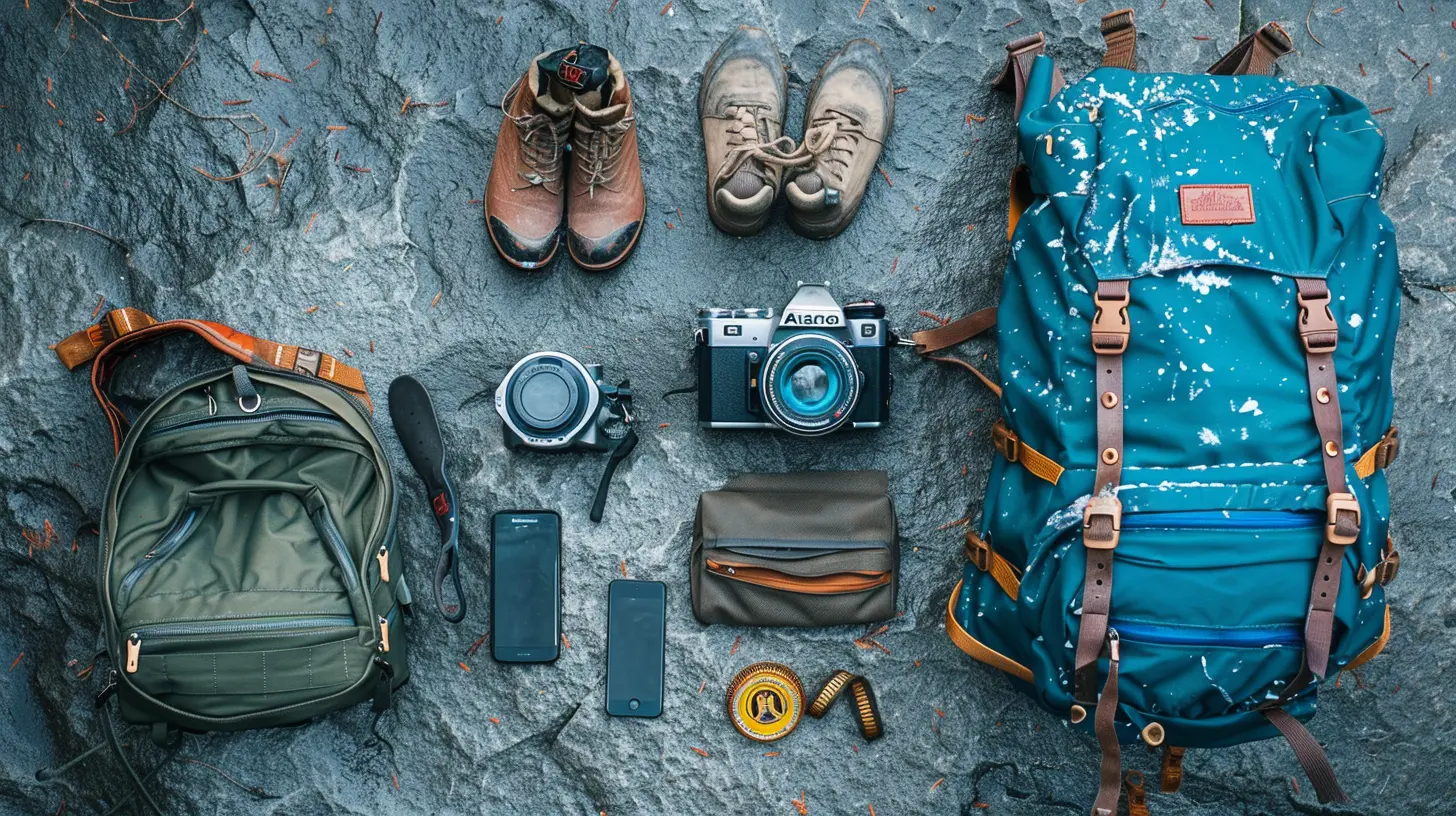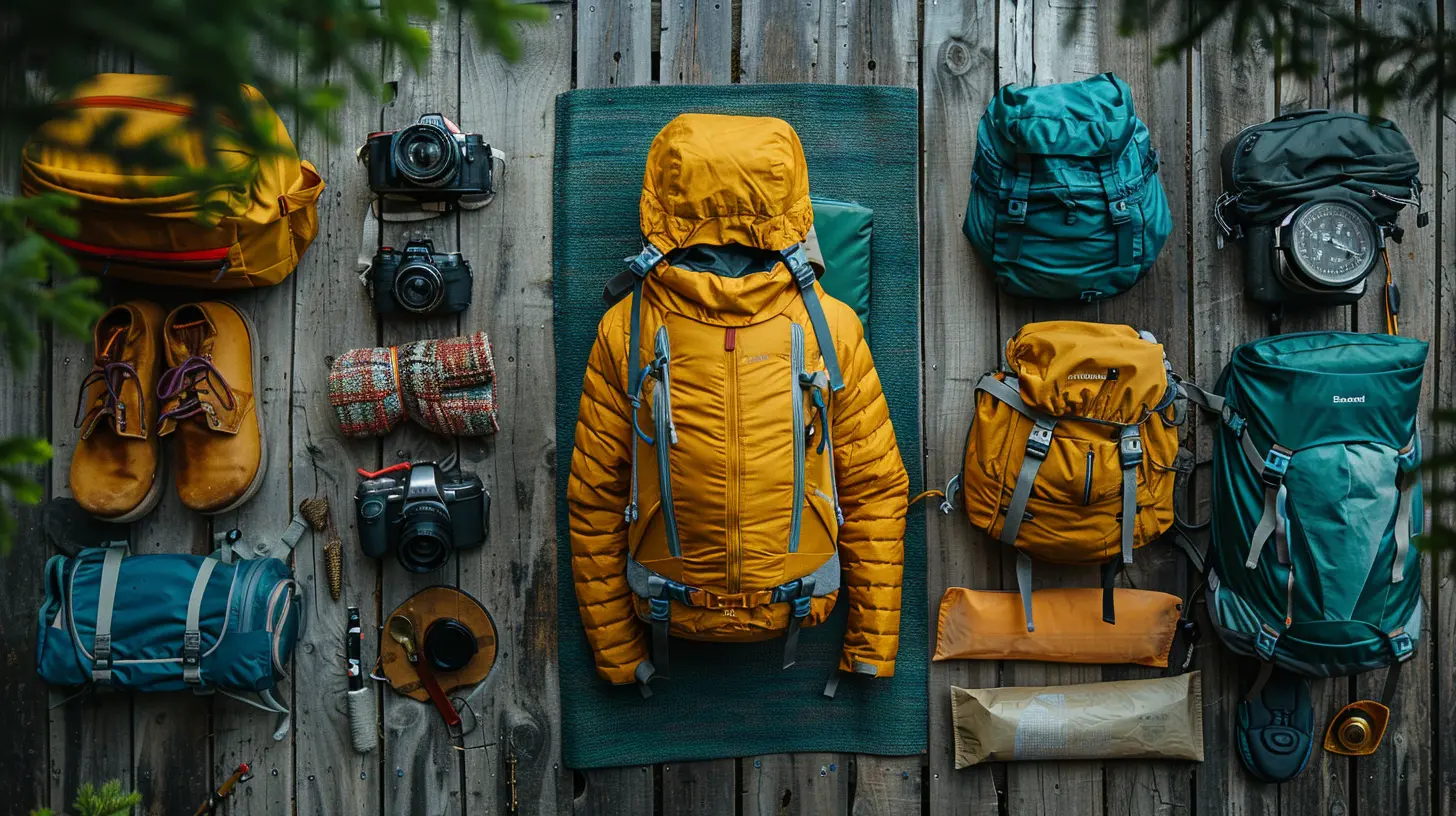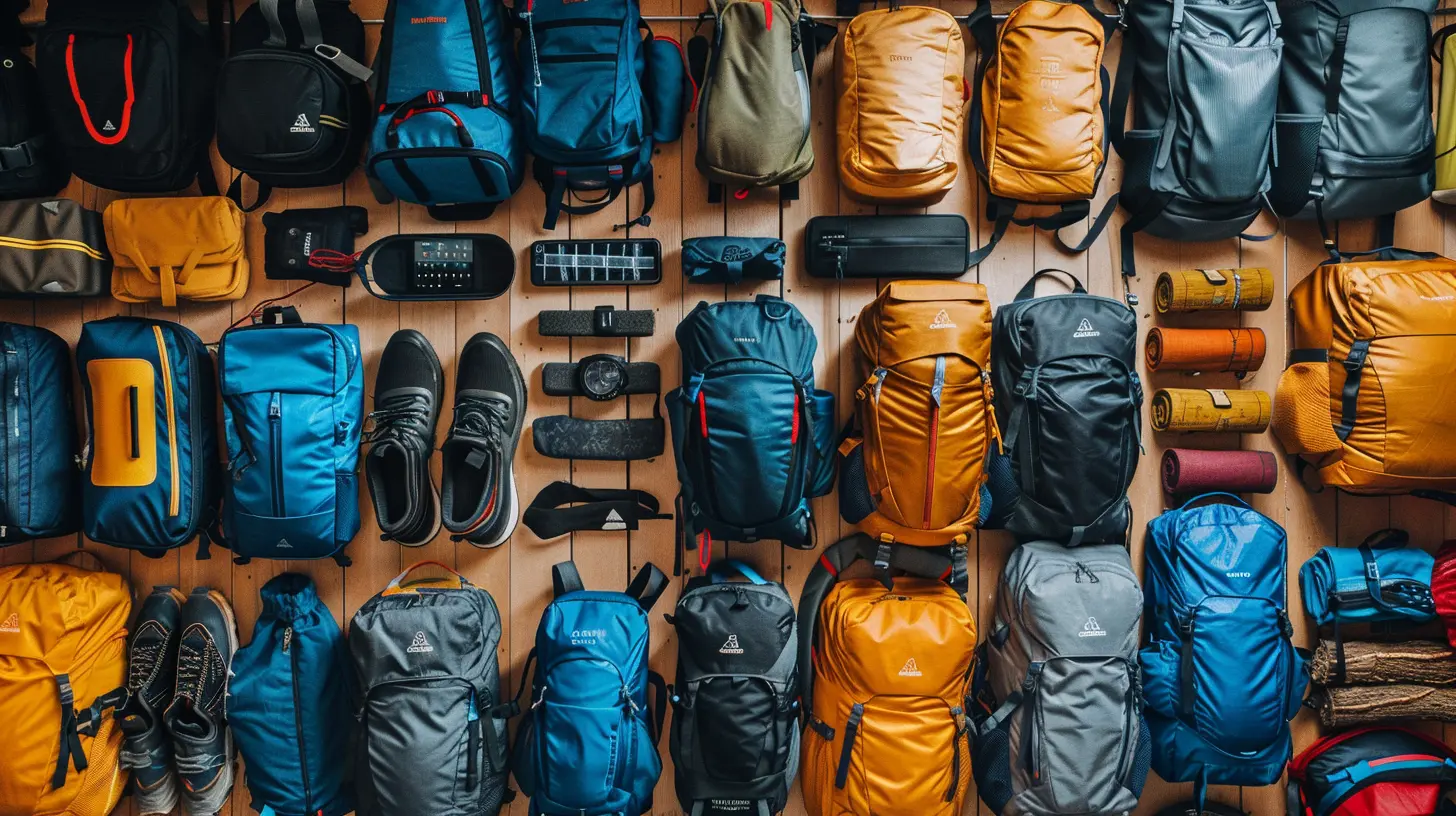How to Pack Light Without Missing the Essentials
6 June 2025
Packing light is an art, and if you've ever wrestled with an overstuffed suitcase or paid extra for baggage fees, you know the struggle. But here's the good news—you don’t have to sacrifice essentials just to travel light. Smart packing is all about strategy, and with a little planning, you can cut down on unnecessary items while still having everything you need.
So, how do you pack light without forgetting the essentials? Let’s break it down step by step.

Why Packing Light Is a Game-Changer
Before diving into the "how," let’s talk about the "why." Traveling with less luggage makes your trip easier, cheaper, and more enjoyable. Here’s why:- Less to carry – No more dragging around a heavy suitcase.
- No baggage fees – Save money on checked-in luggage.
- Faster airport experience – Skip the baggage claim and go straight to adventure.
- More mobility – Move around freely without the burden of a bulky bag.
Now that we agree packing light is the way to go, let's get to the how-to part. 
Step 1: Choose the Right Bag
Your bag dictates how much you carry. A carry-on-sized backpack or suitcase (around 40 liters) is ideal for most trips. The smaller the bag, the less tempted you'll be to overpack.Qualities of the Perfect Travel Bag:
- Lightweight – The bag itself shouldn't be heavy before packing.- Durable – You want something that survives rough handling.
- Multiple compartments – Helps organize your items.
- Expandable (optional) – A little extra space when needed.
If you can, opt for a backpack with a hip belt for better weight distribution or a high-quality rolling suitcase for convenience. 
Step 2: Pack Versatile Clothing
One of the biggest packing mistakes? Taking too many clothes. Instead of packing for "what if" situations, focus on items that can be mixed and matched.Clothing Packing Tips:
- Stick to a color scheme – Neutral colors mix and match easily.- Layering is key – Pack thin layers instead of bulky items.
- Choose multi-functional pieces – A dress that can double as casual wear or a scarf that turns into a shawl.
- Limit shoes to two pairs – One comfortable walking pair and one versatile extra.
A simple rule: Follow the 5-4-3-2-1 rule.
- 5 tops
- 4 bottoms
- 3 pairs of shoes
- 2 outer layers
- 1 dressy outfit (optional) 
Step 3: Master the Art of Packing
How you pack is just as important as what you pack. The goal? Maximize space while minimizing wrinkles.Best Packing Techniques:
1. Roll your clothes – Saves space and prevents wrinkles.2. Use packing cubes – Keeps your bag organized.
3. Stuff socks and smaller items inside shoes – No wasted space.
4. Wear bulky items on the plane – Saves valuable luggage space.
If you’re flying, always leave a little empty space in your bag for souvenirs or last-minute additions.
Step 4: Limit Toiletries and Cosmetics
Most hotels and accommodations provide basic toiletries, so don’t pack full-sized bottles. Stick to travel-sized essentials or buy on arrival.Essentials Only:
- Solid toiletries – Shampoo bars, solid soap, and toothpaste tablets save space.- Multipurpose products – A moisturizer that doubles as sunscreen? Yes, please!
- Minimal makeup – A small kit with just the essentials.
Pro tip: Use refillable travel bottles to carry just what you need and avoid spillage.
Step 5: Choose Smart Travel Accessories
Certain accessories make a world of difference when traveling light.Must-Have Travel Accessories:
- Compact travel towel – Dries quickly and takes up little space.- Universal adapter – One adapter for all countries.
- Collapsible water bottle – Saves space when empty.
- E-reader or tablet – Instead of carrying multiple books.
- Packing cubes – Keeps things neat and compact.
Avoid the temptation to bring “just in case” items. If you don’t use it daily, chances are you won’t need it on your trip.
Step 6: Pack Efficiently for Different Climates
Whether you’re heading to a tropical island or a snowy mountain, packing light is still possible.Warm Destinations:
- Lightweight, breathable fabrics- Sun hat and sunglasses
- Sandals and one pair of closed shoes
- Swimsuit and a cover-up
Cold Destinations:
- Layered clothing (base, mid, outer layer)- Thermal wear instead of bulky sweaters
- Waterproof jacket
- Compact gloves, hat, and scarf
Mixed Weather:
- A light rain jacket- Convertible pants or zip-off trousers
- A combination of short and long-sleeve tops
Packing layers instead of bulk means you can adjust your outfit to the weather without packing your entire wardrobe.
Step 7: Don't Overpack Your Tech Gadgets
Tech items are often the heaviest and bulkiest things in a bag. Keep it simple.Essentials:
- Smartphone (doubles as a camera, GPS, and entertainment)- Lightweight laptop or tablet (only if necessary)
- Chargers and a power bank
- Noise-canceling earbuds instead of bulky headphones
Unless you're working while traveling, leave the heavy DSLR and extra gadgets at home. Your phone’s camera will likely be enough for capturing memories.
Step 8: Keep Your Travel Documents Organized
Nothing is worse than searching through your bag for a missing document at the airport. Keep everything in an easy-to-access travel wallet or pouch.Must-Have Documents:
- Passport and visa (if required)- Flight tickets and reservation details
- Credit/debit cards and some cash
- Travel insurance information
- Emergency contact numbers
Consider keeping digital copies of important documents on your phone and in cloud storage as a backup.
Step 9: Pack Smarter for Longer Trips
Traveling for weeks or months? You still don’t need a huge suitcase. Instead of packing more clothes, plan to do laundry on the road.Laundry Options:
- Lightweight travel-size detergent for hand-washing clothes.- Choose accommodations with laundry facilities.
- Wash and wear – Quick-drying clothes are ideal.
With this approach, you’ll only need a week’s worth of clothing, no matter how long your trip is.
Final Tips for Packing Light
- Be ruthless – If you’re unsure about an item, leave it behind.- Reassess your bag – Before closing your luggage, remove anything that’s not absolutely necessary.
- Pack the night before – Rushing leads to overpacking.
Packing light is a skill, and like any skill, it gets better with practice. Stick to the essentials, pack strategically, and embrace the freedom of traveling with less.
Your back (and your wallet) will thank you.
all images in this post were generated using AI tools
Category:
BackpackingAuthor:

Kelly Hall
Discussion
rate this article
2 comments
Primrose Benson
Pack like a pro—lighten your load, elevate your adventure!
June 12, 2025 at 3:03 PM

Kelly Hall
Thanks! Packing light definitely enhances the adventure—less weight means more freedom to explore!
Lauren Clarke
Great tips! The emphasis on versatile clothing and essential travel items is invaluable. I’ll definitely try the rolling technique. Packing light made easy—thank you!
June 9, 2025 at 2:37 AM

Kelly Hall
Thank you for your feedback! I'm glad you found the tips helpful. Happy packing!


